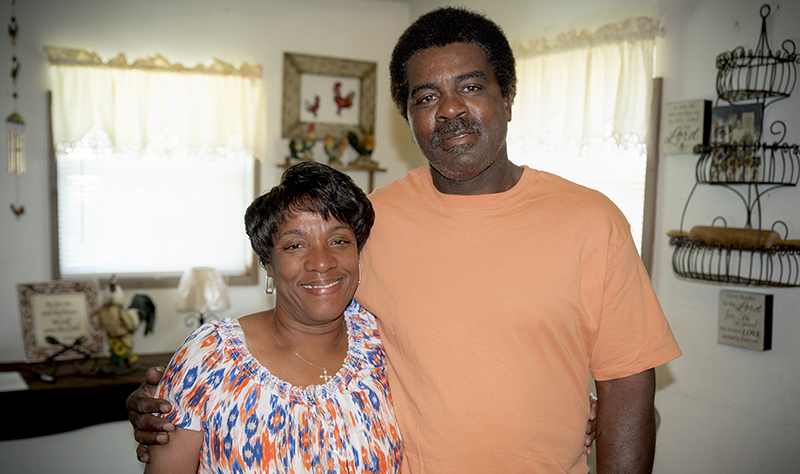Every boy gets a fresh start at the McHenry house
July 2018 · Ministry News
The adolescent boy looked at Otis McHenry like he was nuts. “What do you mean?” he replied.
“I said, ‘Are you a square, a triangle, or a circle?’” repeated Otis. “That’s your life right now; you don’t know what you are. But I’m here to help. If you let me in a bit, I can do that. Believe me, I don’t want to hurt you, I just want to help you.”
The boy did eventually “let him in,” and today he’s one of more than 30 former foster youth who still keep in touch with Otis and his wife Sheryl. For more than 12 years, the Haskell, Oklahoma, couple have provided love and guidance to youth that have experienced emotional and physical trauma. Because of trauma, some children in foster care struggle to cope with often severe behavioral issues that require the skills of specially trained and specially motivated foster parents.
“Kids are kids to me, so if one needs help, I’m going to do it,” said Sheryl. “I love a challenge.”

Sheryl and Otis have been therapeutic foster parents for so long, they feel they’ve pretty much seen it all. Otis says they’ve always had the confidence they need to deal with kids, particularly troubled ones. Even so, they’ve come a long way since the day they met their first placement more than a decade ago.
“All three of us were nervous,” she said. “When he came in the house, I showed him his room and asked him if he needed help putting away his things. He just said quietly, ‘No, I’ve got it.” Finally, I just said, ‘Look, I know you’re nervous, you don’t know us. But we don’t know you either. We’re all in the same boat, so we might as well make this fun and enjoy ourselves. Put down your stuff and let’s go get some ice cream.’ He turned around, looked at me and said, ‘Great, let’s go!’”
That story makes them both laugh. As foster parents, they rely on laughter, because they might otherwise cry. They’ve heard some horrible stories over the years, stories about trauma. Yet, they refuse to let those stories define a child.
“When they show up here, we tell them, ‘your past stays in your past,’” said Otis. ‘We’re just going to put it in a sack and toss it outside.’”
They couple also depends heavily on structure. They say it’s vital. Children in foster care need to feel they are treated fairly, that every child in the home is equal. That means, they must follow rules.
“Some of them object, they get angry,” said Otis. “Then they’ll start to accept it because they like the structure. Many of them have never had it before. But once you give that structure, it shows you care about them, and that’s when you start gaining their trust and their love.”
Of the 32 young men Otis and Sheryl have fostered, all have been teenagers, but one. They expected a 13-year-old when Braxton showed up at their door, but later learned he was only 10. The young boy feared they’d send him back, but Sheryl simply said, “No, you can stay. You’re younger than what I’ve dealt with before, but evidently you’re supposed to be here.” They adopted Braxton, now 12, last August.
That’s how Otis and Sheryl operate, though. They see a child in need and they help, no questions asked. Tough, determined, and fair, they don’t care what trouble that child has experienced or even caused in the past. It’s the past, and everyone gets a fresh start at the McHenry house.
“We’ve fostered 32 kids, and nearly all went on to college, the military, or work,” said Sheryl. “We’ve had successes and disappointments, but lots of great stories. That’s the way it goes. You do the best you can while you’ve got them, so when they get grown they can go out on their own.
“Like I said, I love a challenge. We’re not down here on Earth just for ourselves; it’s not about us. I believe this is my calling in life, because even though I can’t change what a kid has been through, I can still be here for him. I’ll help and support him, and together we’ll do our best.”

